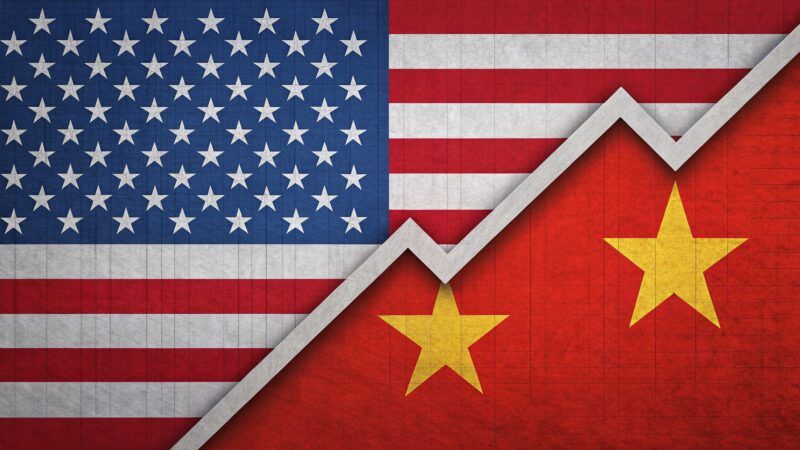You Don't Beat China by Copying China
Xi Jinping’s neo-mercantilist policies are destructive, not productive.

Greg Jensen, co-chief investment officer at asset management firm Bridgewater Associates, recommended last week in The Wall Street Journal that the U.S. adopt China's "quasimodern mercantilist system." Jensen claims that "currency management, public procurement, state subsidies, protectionism and other implicit subsidies" have enabled China to develop "a range of leading industries." He also advocates for industrial policy through the protection of "national corporate champions."
But while it is true that China makes up the majority of manufacturing capacity for electric vehicles (nearly 60 percent in 2023), solar power (over 80 percent in 2022), and battery cells (75 percent in 2022), China's central planning has harmed its economy. It has resulted in industrial overcapacity, increased its debt-to-GDP ratio, and depressed household spending. Adopting these policies would harm America's economy and productivity.
A 2020 analysis by the World Bank points to the reallocation of resources "from inefficient state-owned enterprises (SOEs) to dynamic private firms" as crucial to increasing productivity growth. The researchers attribute China's below-7-percent GDP growth in 2015–2018 "to slowing growth in Total Factor Productivity," which is caused by insufficient capital reallocation from sclerotic SOEs to private firms. Stanford's Center on China's Economy and Institutions in 2022 found that firms with below 50 percent state ownership were more productive and profitable than SOEs. In fact, the country's most profitable firm, Tencent, is a multinational technology conglomerate that is 99 percent privately owned.
Through central planning, China has indeed increased capacity in certain industries, but arbitrarily allocating capital does not put it to its highest valued use. By ignoring and distorting prices, the state has no means to determine how it should allocate inputs. In China's Great Wall Of Debt, financial journalist Dinny McMahon explains how subsidies and protectionism account for overcapacity in the Chinese steel industry: Factories only produced 70 percent of their 1.1 billion tons of steel in 2015 and still "more than half of China's steel companies posted a loss" because "prices were driven so low that steel was cheaper than cabbage."
China's economic outlook remains bleak. Reuters reports that China has 31.2 billion square feet of unused housing inventory in 2024. Household spending was 20 percentage points less than the global average in 2024, and its government-sector debt was 116.9 percent of GDP in 2023. Furthermore, its policy of picking national champions has hampered its economy, not enriched it: The central government's own State-owned Assets Supervision and Administration Commission (SASAC) "identified 345 'zombie' firms among central [state-owned enterprises], which have run losses for three consecutive years," according to a 2016 International Monetary Fund working paper.
China is a clear example of how central planners lack the knowledge to effectively manage an economy. Instead of adopting China's mercantilist policies that insulate firms from competition, allocate capital arbitrarily, and keep unprofitable firms on life support, the United States should double down on free trade, deregulation, and privatization.


Show Comments (39)